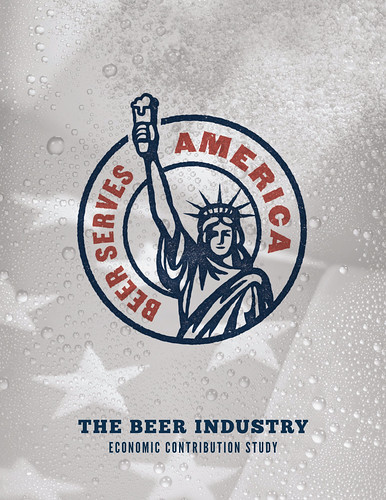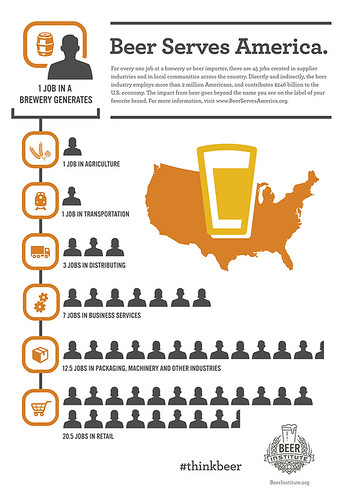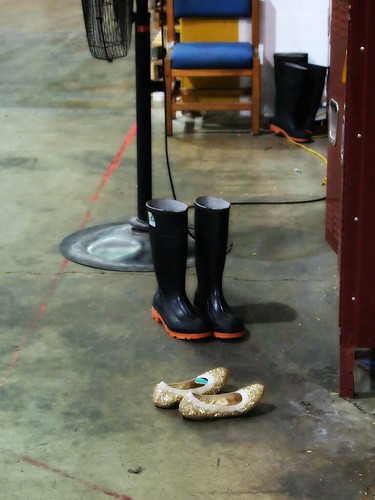These facts and figures are from last year, but you'll get the idea. On Labor Day, enjoy a beer produced for you by American laborers, or as you might call them, brewers.
- Overall, the beer industry contributes about $252.6 billion in economic output which is equal to about 1.5 percent of the U.S. Gross Domestic Product.
- Brewers and beer importers directly employ 49,576 Americans. More than 70 percent of brewing jobs are linked to large and mid-sized brewers and beer importers.
- The number of distributor jobs has increased by more than 20 percent in the last decade, to more than 131,307, according to the U.S. Department of Labor.
- Suppliers to the brewing industry – enterprises that manufacture bottles and cans, cardboard case boxes, brewing equipment or marketing displays, for example – generate more than $83 billion in economic activity and are responsible for more than 383,190 jobs alone.
- More than $48.5 billion in tax revenue is generated by the production and sale of beer and other malt beverages. This is equal to nearly 40 percent of the retail price paid for beer by consumers.
Beer Serves America Beer Institute July 2015.
According to the [U.S.] Brewers Association, "small and independent American craft breweries" create more than 424,000 jobs, with more than 115,000 jobs directly at breweries and brewpubs, including serving staff at brewpubs. All put, the 'craft' brewing industry contributes $55.7 billion to the U.S. economy. * Obviously, different metrics than those of the Beer Institute.
And what of that second 'tier' of the beer business, the wholesalers —the drivers who get up at 4 in the morning to get you your beer— much maligned in the 'craft' beer ambit?
- The beer distribution industry directly employs 135,000 people in the United States.
- When the impacts of distributor operations, capital investment and community involvement are considered, the total number of impact jobs exceeds 338,000.
- Beer distributors contribute a total of $70 billion in economic impact across the U.S.
- Beer distributor activities contribute nearly $13 billion to the federal, state and local tax bases. This does not include the nearly $11 billion in federal, state and local alcohol excise and consumption taxes.
- The beer distribution industry contributes more than $23 billion in transportation efficiencies for the beer industry each year.
- Beer distributor activities result in nearly $178 million in economic impacts to communities through support of charities, local events and economic development.
America’s Beer Distributors: Fueling Jobs, Generating Economic Growth & Delivering Value to Local Communities National Beer Wholesalers of America (NBWA) 2015.
According to Nielsen, more beer is sold in the United States during the Labor Day holiday than during any other holiday of the year.† Thank you brewsters, brewers. et al.!
-----more-----
- * The [U.S.] Brewers Association (BA) derives its data from a 2014 study. The association defines a small and independent American craft brewery as:
- Small
- Annual production of 6 million barrels of beer or less (approximately 3 percent of U.S. annual sales). Beer production is attributed to the rules of alternating proprietorships.
- Independent
- Less than 25 percent of the craft brewery is owned or controlled (or equivalent economic interest) by an alcohol industry member that is not itself a craft brewer.
- Traditional
- A brewer that has a majority of its total beverage alcohol volume in beers whose flavor derives from traditional or innovative brewing ingredients and their fermentation. Flavored malt beverages (FMBs) are not considered beers.
- Small
- Follow on Twitter: @Cizauskas.
- Like on Facebook: YoursForGoodFermentables.
- Follow on Flickr: Cizauskas.
- Follow on Instagram: @tcizauskas.












No comments:
Post a Comment
Comment here ...